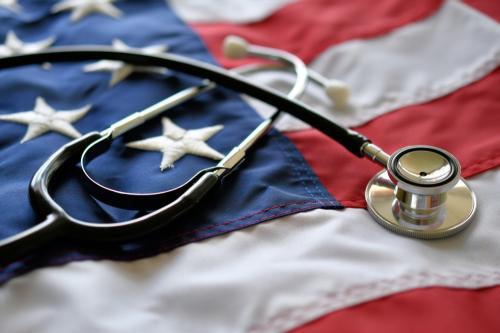Update: This post was updated to reflect Texas Presbyterian Hospital’s statements on EHR on 10/15.
Thomas Duncan, the first person to die in America from Ebola, visited the emergency room at Texas Presbyterian Hospital in Dallas on September 25th. According to the hospital, “Protocols were followed by both the physician and the nurses. However, we have identified a flaw in the way the physician and nursing portions of our electronic health records (EHR) interacted in this specific case. In our electronic health records, there are separate physician and nursing workflows.” On October 3rd the hospital issued the following statement, “We would like to clarify a point made in the statement released earlier in the week. As a standard part of the nursing process, the patient’s travel history was documented and available to the full care team in the electronic health record (EHR), including within the physician’s workflow. There was no flaw in the EHR in the way the physician and nursing portions interacted related to this event.” The clarification did not reveal exact details on the EHR and Mr. Duncan’s medical treatment, but he was released from the hospital and later readmitted but subsequently died. As a general matter, electronic records are far superior to paper records but a series of technical, political, and policy barriers have made it difficult to realize their enormous potential.
Challenges to Better Records
- Privacy Protection– Creating useful data systems that safely and securely transfer records is a technical challenge. There is also political opposition to creating a national database that other countries have used successfully.
- Financial Costs– Switching from paper to electronic systems come with significant costs. In the long-term EHRs can save insurers and hospitals money. However, in the current fee-for-service model practitioners of medicine do not have a financial incentive to use electronic records.
- Inadequate Systems– EHR systems include voluminous files that are unwieldy for everyday use. More advanced record systems will parse data to provide healthcare professionals with the relevant data.
Policies to Improve Healthcare
- New Healthcare Payment Models– Government programs are ushering in a new healthcare system where people pay for quality rather than service. The Accountable Care Act required the Centers for Medicare and Medicaid Services to develop new payment models including Accountable Care Organizations and bundled payments.
- Demonstrating Results– Many are skeptical about the true value of EHR systems. The government can play an important role by funding research to demonstrate how they save money and improve patient outcomes.
- Standard Setting– Developing standards for EHRs can help to solve many logistical and design challenges. The government can bring together important public and private stakeholders to facilitate this process.
- Enforcement of Competition Rules– Competition in health care promotes innovation and protects consumers from unfair price increases. The Federal Trade Commission should work to protect reasonable competition among health IT providers.
The potential benefits of electronic records are game changing. At a recent Brookings event on connectivity in healthcare many of the panelists agreed that the U.S. will develop a solution that meets its unique needs. In the future a federated data model could solve many of the problems discussed here. Such a system would allow users to search multiple databases quickly and safely. Currently such a plan is technically and politically difficult. Though serious problems persist, the future of health records may include far less paper.
>




Commentary
Could Better Electronic Health Records Have Prevented the First American Ebola Case?
October 14, 2014